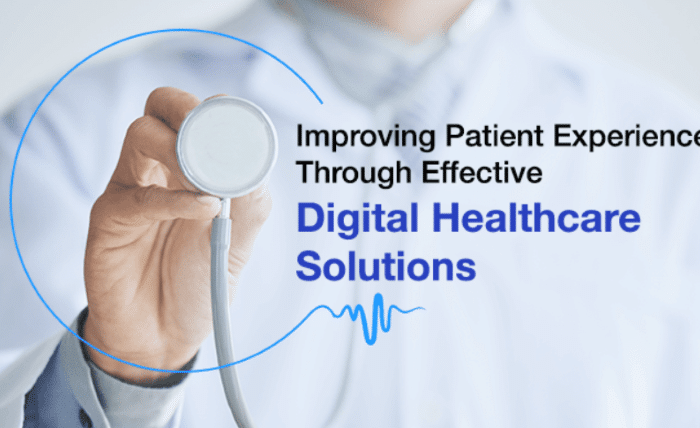
Patient engagement is an essential part of healthcare today. Encouraging patients to take an active role in their care helps improve outcomes and strengthens trust between them and their providers. As healthcare systems become increasingly complex, the demand for better engagement grows.
Custom healthcare solutions address this need effectively. These tools give patients access to resources that make it easier to stay informed and connected. From mobile applications to personalized portals, these technologies are reshaping the patient experience and fostering stronger relationships between individuals and healthcare systems.
What Does Patient Engagement Mean in Healthcare?
Involving patients in their care journey is the primary objective of patient engagement. It places significant value on patients being educated and actively involved in health-related interactions through shared decision-making.
People are more likely to adhere to treatment plans and take preventative action when they are more involved. Higher satisfaction and better health outcomes are among the outcomes. But conventional approaches frequently don’t have the adaptability to give patients the tailored treatment they require.
Custom healthcare solutions fill this gap by offering tools made to fulfill the requirements of both patients and providers.
The Impact of Custom Healthcare Solutions
Tools that fill particular needs in healthcare services are put together by custom healthcare software development. These solutions enhance user experience and operational efficiency by serving both individual patients and the system as a whole.
Custom software places greater emphasis on personalizing than generic platforms. It enables providers to improve the quality of patient interaction while optimizing their operations through seamless integration into current workflows. Telehealth platforms, fitness app development services, and patient portals are some examples of these technologies.
Interoperability in healthcare is also ensured via custom tools, which facilitate system interconnectivity. Data sharing becomes smooth with the use of HL7 interface engines, facilitating care team coordination.
Essential Features of Engagement Tools
Custom healthcare solutions offer a range of features aimed at making the patient experience better and more accessible.
Intuitive Patient Portals
Patient portals provide a single platform where individuals can manage appointments, access medical records, and communicate with healthcare providers. These portals make healthcare services more accessible, especially for those unable to visit in person frequently.
An intuitive design ensures that even less tech-savvy users can navigate the portal easily, empowering them to manage their care effectively.
Mobile Health Apps
Mobile apps give patients the power to track their health in real time. Features like medication reminders, health tips, and personalized data insights promote better self-management.
Custom healthcare apps provide unique capabilities, tailored to specific needs, ensuring patients remain engaged and proactive about their health.
Telehealth and Virtual Care
Telehealth has revolutionized access to healthcare. Virtual visits allow patients to consult doctors from home, which eliminates barriers like travel or time constraints.
The convenience of telehealth also benefits providers by reducing missed appointments and offering a flexible way to care for more patients.
Interactive Educational Tools
Education is central to empowering patients. Interactive resources, such as videos, infographics, and quizzes, help individuals understand their conditions and treatments better.
When patients are well-informed, they are more likely to make confident decisions about their care.
5 Benefits of Custom Healthcare Solutions
The advantages of custom tools extend beyond better engagement. They also improve overall efficiency and care quality.
1. Improved Accessibility
Custom solutions remove obstacles like distance, scheduling issues, and long wait times. Patients can access care whenever they need it, improving their overall experience.
2. Personalized Interactions
These tools enable providers to tailor care plans and communication strategies for individual patients. Personalized reminders, messages, and resources ensure a unique experience for every user.
3. Real-Time Feedback
Custom solutions often include feedback mechanisms such as surveys or ratings. These tools give patients a voice, allowing providers to refine their services based on real-time input.
4. Streamlined Communication
Efficient communication is critical in healthcare. Custom tools like secure messaging and automated updates keep patients informed while reducing provider workloads.
5. Real-World Success
A regional hospital implemented a custom patient portal to simplify engagement. Patients could schedule appointments, view lab results, and message their care teams.
This approach led to higher satisfaction and a noticeable reduction in missed appointments. Additionally, administrative efficiency improved as staff spent less time answering repetitive queries or rescheduling appointments.
Trends Driving Patient Engagement Technology
The future of patient engagement relies on cutting-edge technologies designed to enhance personalization and connectivity.
In order to anticipate the needs of patients and provide personalized therapy, AI and machine learning are being used. These tools assist healthcare professionals in identifying prospective issues and taking immediate measures.
Wearable technology, which tracks vitals like heart rate and level of exercise, has grown more and more common. They enable real-time data sharing when combined with healthcare interoperability technologies, which improves the accuracy and efficiency of care.
Additionally, voice-activated technologies increase accessibility for elderly or differently abled users, and virtual reality is being investigated for patient education and rehabilitation. As these technologies develop, protecting secure and private information remains to be essential.
Conclusion
Patient-provider communications are being redefined by custom healthcare solutions. Such tools enables patients to take control over their health while aiding healthcare professionals in providing better, more efficient medical care.
Healthcare providers may address changing needs by investing in technology likeHealthcare interoperability solutions and healthcare app services. By emphasizing engagement at first, healthcare professionals can strengthen patient satisfaction and effectiveness.
Patient-centered solutions are the way of the future in healthcare. With the correct resources, healthcare professionals can establish stronger relationships with their patients and provide treatment that effectively impacts everyday life.




